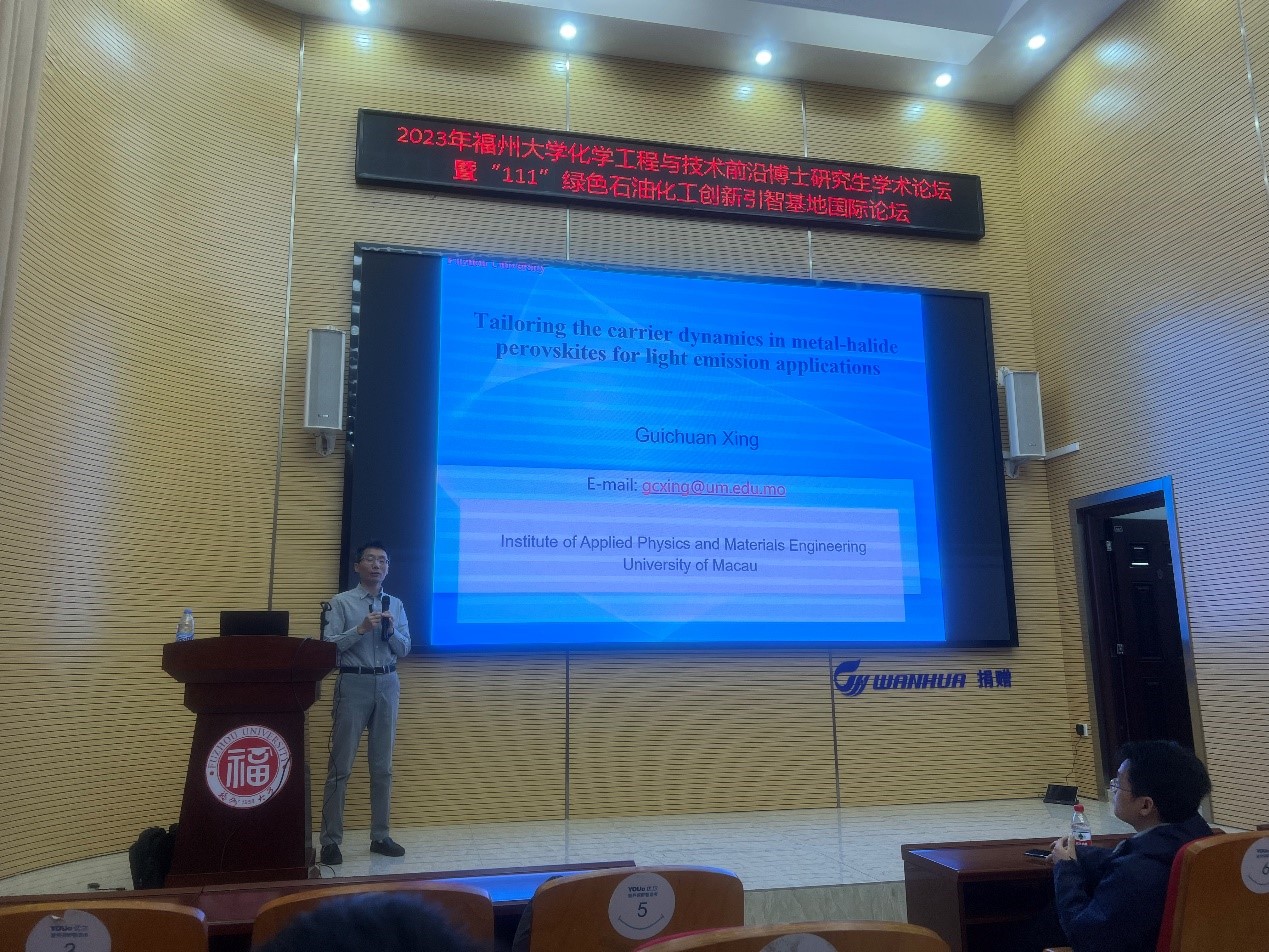On December 16th, 2023, Professor Xing Guichuan from the University of Macau visited and exchanged ideas with Professor Tang Yuxin from the School of Petrochemical Engineering at Fuzhou University. He delivered an excellent academic lecture titled "Tailoring the carrier dynamics in metal-halide perovskites for light emission applications" at Room 101, Quangang Building South, bringing fascinating insights to students and faculty members.
Metal-halide perovskites are important materials composed of compounds with the ABX3 crystal structure, where A is typically an organic/inorganic ion, B is a metal ion (often a transition metal), and X is oxygen or a halogen. As a versatile material, metal-halide perovskites possess broad applications in fields such as solar energy, photocatalysis, electronic devices, light emission, and energy storage. Professor Xing Guichuan first discussed the development trend of metal-halide perovskites, and then focused on their work regarding the nonlinear optical properties and ultrafast carrier dynamics in novel optoelectronic materials and devices.

Lecture scene
In Professor Xing Guichuan's research, they introduced a new convenient method for determining the trap density in semiconductors through derived formulas, effectively improving the light emission efficiency of LED devices.
Professor Xing Guichuan's lecture drew great interest from the attendees, igniting their curiosity and exploration desire. The participants actively engaged in the discussion session and had in-depth exchanges with Professor Xing Guichuan on related research areas. This interaction not only enhanced mutual understanding but also promoted academic collaboration and disciplinary development.
This exchange activity provided a valuable platform for academic communication for the students and faculty of Fuzhou University. Through the sharing and discussion of academic lectures, it not only facilitated interdisciplinary cooperation but also promoted the sharing and innovation of research achievements. We believe that such exchanges and collaborations will further drive the development of electrochemical energy storage and lay a solid foundation for future research breakthroughs. We look forward to more academic exchange activities that foster close cooperation between academia and industry, jointly advancing scientific and technological progress and societal development.

Group photo
